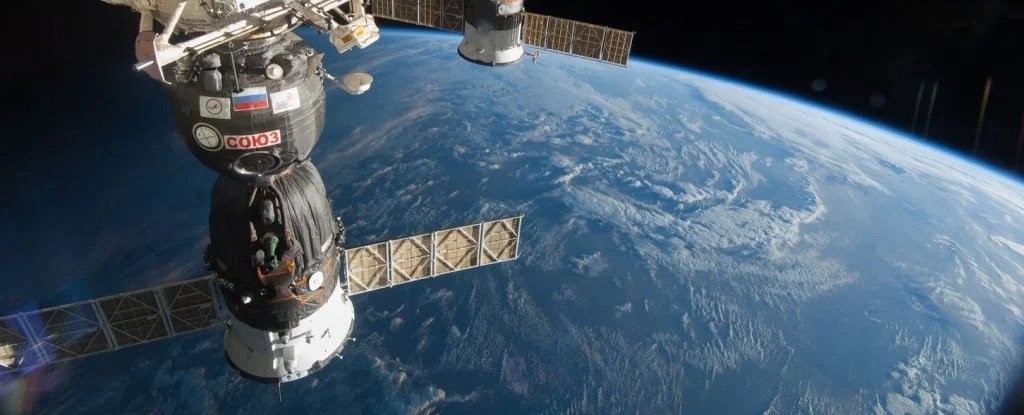Western sanctions against Russia could lead to a crash of the International Space Station (ISS), the head of the Russian space agency Roscosmos warned on Saturday and called for the withdrawal of punitive measures.
According to Dmitry Rogozin, sanctions, some of which Moscow invaded Ukraine, could disrupt the operation of Russian spacecraft serving the ISS.
As a result, the Russian section of the station – which helps fix its orbit – could be affected, causing the 500-ton structure to “fall into the sea or on land”, Roscosmos chief wrote in a telegram.
“The Russian segment ensures that the station’s orbit is corrected (an average of 11 times a year), to avoid space breakdowns,” said Rogozin, who regularly shows support for Russian forces in Ukraine on social networks.
By publishing a map of the places where ISS is likely to come down, he pointed out that it is less likely to be in Russia.
“But the populations of other countries, especially those led by ‘dogs of war’, should consider the cost of sanctions on Roscosmos,” he said, describing the countries that imposed the sanctions as “crazy”.
Rogozin similarly blasted Western restrictions on Twitter, raising the risk of the space station crashing to Earth.
On March 1, NASA said it was trying to find a way to keep ISS in orbit without Russia’s help.
The crew and supplies are transported to the Russian section by the Soyuz spacecraft.
But Rogozin said the launcher used for take-off was “under US sanctions from 2021 and EU and Canadian sanctions from 2022”.
Roscosmos said he had appealed to NASA, the Canadian Space Agency and the European Space Agency to “lift the illegal sanctions on our companies”.
Space is one of the last remaining areas where the United States and Russia are cooperating.
In early March, Roscosmos announced its intention to prioritize the creation of military satellites as Russia finds itself increasingly isolated as a result of the war in Ukraine.
Rogozin also announced that Moscow would no longer supply engines for US Atlas and Antares rockets.
“Let them go into space on their broom,” he wrote.
On March 30, US astronauts Mark Wande and two other astronauts, Anton Schaplerov and Pyotr Dubrov, will return to Earth from the ISS on the Soyuz spacecraft.


